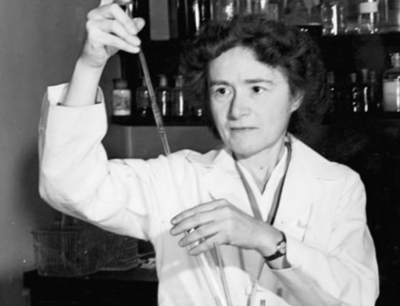
Gerty Cori was an Austrian-American biochemist, known for her discovery of how the human body stores and utilises energy. In 1947, she became the first woman to be awarded the Nobel Prize in Physiology or Medicine and the third woman to win a Nobel.
Gerty Theresa Cori was born in Prague in 1896. She received her primary education at home before entering a lyceum for girls in 1906. She entered the Medical School of the German University of Prague, where she met her future husband Carl Cori. She received the Doctorate in Medicine in 1920 and got married the same year.
Immigrating to the United States in 1922, the husband-wife duo joined the staff of the Institute for the Study of Malignant Disease, Buffalo, N.Y. Working together on glucose metabolism in 1929, they discovered the ‘Cori Cycle the pathway of conversion of glycogen (stored form of sugar) to glucose (usable form of sugar).
They became naturalised citizens of the U.S. In 1936, they discovered the enzyme Phosphorylase, which breaks down muscle glycogen, and identified glucose1phosphate Cori ester) as the first intermediate in the reaction. The Coris were consistently interested in the mechanism of action of hormones and they carried out several studies on the pituitary gland.
Although the Coris were equals in the lab. They were not treated as equals. Gerty faced gender discrimination throughout her career. Few institutions hired Gerty, despite her accomplishments, and those that did hire, did not give her equal status or pay.
In 1947, Gerty Cori, Carl Cori and Argentine physiologist Bernardo Houssay received the Nobel Prize in 1947 for their discovery of the course of the catalytic conversion of glycogen. However, the happiness was short-lived. The same year Gerty was diagnosed with myelosclerosis, a rare form of bone marrow cancer. She struggled with the disease for the next ten years of her life, and succumbed to it in 1957.
Picture Credit : Google



